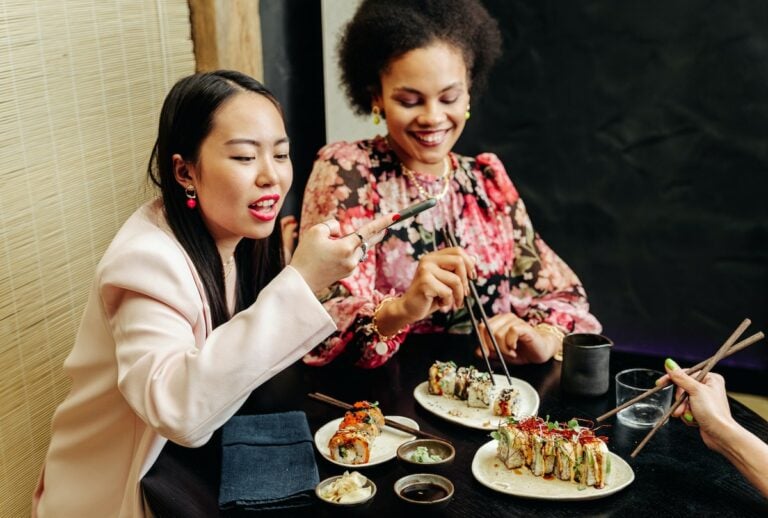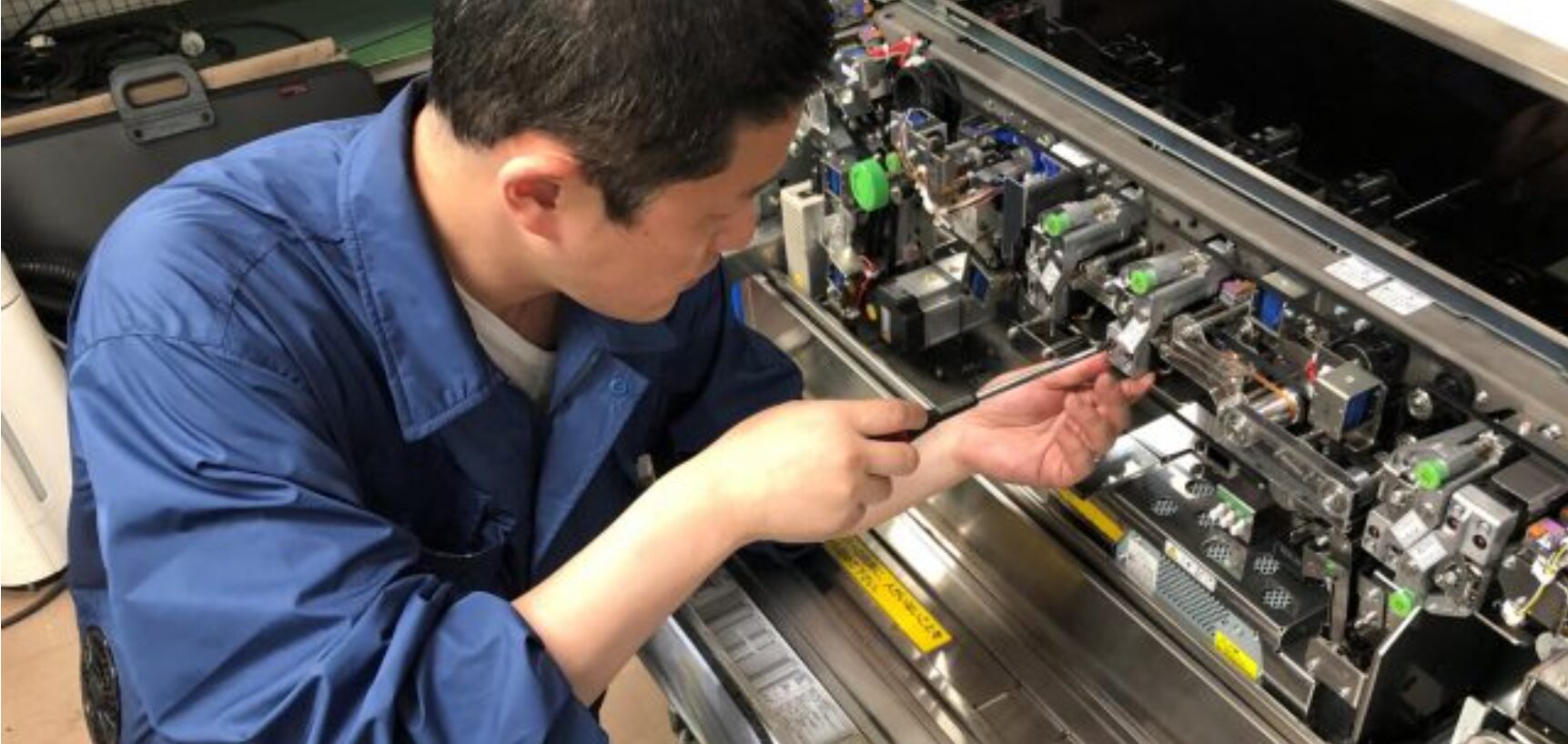
Want to make more friends in Japan but feel like you’re hitting a wall with the language barrier?
This article is written with the aim of helping you feel more confident making new friends in Japanese. I’m going to share 37 Japanese phrases you can use when meeting new people in Japan.
This comes from personal experience. While I speak Japanese now, I remember a time when I struggled to learn Japanese and make friends in Japan.
My first experience living in Japan was in high school, as an exchange student. On top of being an awkward kid, plus all the drama of simply being in high school, I also had to navigate a new language and culture and try to make friends.
My first attempts were embarrassing at best.
But eventually I caught on. I picked up a couple phrase books, memorized some key phrases, and then kept repeating them every time I met a new person. Soon, I felt comfortable having the “get-to-know-you” conversation. And it was a LOT easier to make friends!
Here I’ve included 37 helpful Japanese phrases you can memorize and use in your own conversations to help you make friends in Japan.
Let’s dive in.

The first phrase you need to know
If you’ve learned any Japanese at all, you’ve probably heard the phrase:
はじめまして! Hajimemashite! Nice to meet you!
THIS is the #1 phrase you will use to make a new friend, so I recommend memorizing this first.
In English, we often say, “Hi, nice to meet you!” But in Japan, you just say はじめまして! It’s a greeting and a “Nice to meet you,” all rolled into one.
The full phrase is: はじめまして、(your name)です!
Follow this with:
名前 は何 ですか? Namae wa nan desu ka? What’s your name?
And there you go! You’ve made a new friend.
But what if you want to get to know this person a little bit better? Or what if they want to know about you?
Here are some phrases you can use to go a little deeper.
Japanese Conversation Questions and Answers
What’s your name?
I already mentioned one way to ask for someone’s name. But in a more formal situation, like at work, you could use the formal version:
- お名前 はなんですか?O-namae wa nan desu ka? What’s your name? (formal)
To answer that question, you can say:
- (Your Name)です。 (Your name) desu. My name is… (slightly casual but still polite)
- (Your Name)と申します。(Your name) to mōshimasu. My name is… (formal)
Finding out their first name
Sometimes Japanese people don’t give you their first name, but if you want to ask, you can say:
- なんて呼べばいいですか? Nante yobeba ii desu ka? What should I call you? (polite)
- なんて呼べばいい? Nante yobeba ii? What should I call you? (casual)
And if you really want to be direct, you can say:
- 下の名前はなんですか? Shita no namae wa nan desu ka? What’s your first name? (polite)
- 下の名前は? Shita no namae wa? What’s your first name? (casual)
(In a formal situation, asking for a first name like this could be considered rude, so proceed with caution.)
What do you do for a living?
The most common way to get to know another adult is to ask what they do for a living. Sure, it’s not the most important thing in life, but it’s a standard way to get to know someone.
In a formal situation, you can ask:
- お仕事 は何 をされていますか? O-shigoto wa nani o sarete imasu ka? What do you do (for your job)? (formal, polite)
Or you might hear someone say:
- お仕事 は何 されてるんですか? O-shigoto wa nani sareterun desu ka? What do you do (for your job)? (This is slightly less formal but still polite.)
In a casual situation, you can say:
- お仕事 は何 してるの? O-shigoto wa nani shiteru no? What do you do (for your job)? (casual)
To answer this question, you can say:
- (Your job) です。(Your job) desu. I’m a (your job).
For example: 英語 の教師 です。Eigo no kyōshi desu. I’m an English teacher.
Sometimes, people want to keep their company name private, so they might say something like:
- 広告会社 で営業 やってます。Kōkoku gaisha de eigyō yattemasu. I’m in sales at an advertising firm.
You can say:
- あ、そうなんですね! A, sō nan desu ne! I see!
Where are you from?
Someone might ask you:
- 何人ですか? Nani-jin desu ka? What nationality are you?
You can say:
- (Your country)人です。(Your country)-jin desu. I’m (your nationality).
For example, I would say アメリカ人です。Amerika-jin desu.
You can ask them:
- 出身はどこですか? Shusshin wa doko desu ka? Where are you from? (formal)
- 出身はどこ? Shusshin wa doko? Where are you from? (casual)
The answer to this is:
- 出身は(place)です。 Shusshin ha (place) desu. I’m from (place)
For example, someone might say: 出身 は北海道です。 Shusshin wa Hokkaidō desu. I’m from Hokkaido.
And the infamous phrase…
If someone tells you:
- 日本語 上手ですね! Nihongo jōzu desu ne! You’re good at Japanese!
Here are a few ways to respond:
- Say thank you. あっ、ありがとうございます! Ah, arigatō gozaimasu! Oh, thank you!
- Deflect. いいえ、まだまだです。Iie, mada mada desu. It’s still a work in progress.
- Make a joke. 英語のほうがもっと得意です。 Eigo no hō ga tokui desu. I’m better at English.
(My husband suggested this one, and it made me laugh. So it makes the list, too.)
Meeting for the second time
Okay, let’s say you just met someone and you see them again. How do you greet them now?
You could use a simple greeting like:
- こんにちは! Konnichiwa! Hello!
- おはようございます!Ohayō gozaimasu! Good morning! (formal)
- おはよう!Ohayō! Morning! (Casual)
- こんばんは! Konbanwa! Good evening.
Okay, this is like Japanese 101, and you might know these greetings already.
So here are some others you can try.
- やっほ!Yahho! Hey! (This is super casual, best for close friends.)
- おつかれさまです。Otsukaresama desu. Hello! (Formal, used in a work situation or when someone has been working.)
- おつかれ! Otsukare! Hey! (Casual greeting for a friend after they’ve been working or at the end of the day.)
- お元気ですか? O-genki desu ka? How are you doing? (formal)
- 元気にしてる? Genki ni shiteru? How’ve you been? (casual)
- 元気? Genki? How are you? (casual)
- 最近どう? Saikin dō? How’s it going recently? (casual)
And finally, if they helped you in some way the last time you met, you can say:
- この前はありがとうございました。Kono mae wa arigatō gozaimashita. Thanks for the other day! (Thanks for what you did the other day, etc.) (formal)
- この前ありがとう! Kono mae arigatō! Thanks for the other day! (Thanks for what you did for me, etc.) (casual)
Conclusion
We covered a ton of Japanese phrases you can use to make friends, from greeting someone you’ve just met, to asking get-to-know-you questions, to what to say when you bump into someone again.
Yes, there are a lot of phrases here. But I would encourage you to pick just a handful that seem most helpful to you and get used to those first. Before you know it, you’ll find it easy to have these kind of conversations in Japanese.
Want to know how to say something else in Japanese? Leave a comment below—we’d love to cover it in a future article!
Author: Amanda Horiuchi



















